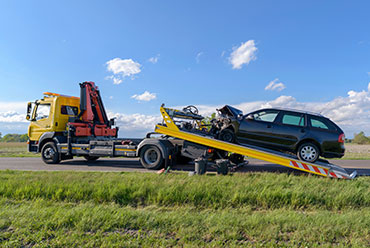
Here is what you will learn from this article:
- Whether your Florida car accident case will go to trial.
- The type of compensation you can seek at trial.
- Whether you can appeal the decision if you’re unhappy with the outcome of the trial.
How Likely Is A Car Accident Case To Go To Trial In Florida?
In many cases, car accident cases don’t go to trial. Most auto injury claims are resolved before any lawsuit is filed, and the majority of lawsuits are resolved in some way before they actually go to trial.
Less than 5% of claims actually go to trial, mainly because a trial is always a gamble. Neither the insurance company, the attorney involved, nor the doctors can guarantee what a jury will decide.
Another big reason the vast majority of cases do not go to trial is that insurance companies and injured claimants often prefer the certainty of reaching a settlement or resolution themselves. But it’s still important to move forward with the posture that you intend to go to trial if necessary.
If you, as a claimant, are visibly prepared to go to trial, then an insurance company will be more likely to be put off by the prospect of going to trial, as opposed to if you are acting milquetoast about it and do not appear confident of bringing it to trial. They will feel confident in blowing your claim off.
What Are The Steps In A Florida Car Accident Trial?
Although most claims are resolved before a lawsuit, some make it to trial. Most cases involve sending a demand, which is just a letter containing the facts of the case, the injuries, and a demand for payment. The majority of cases are resolved at this stage.
But if a lawsuit has to be filed, the first step is to file the lawsuit, then other steps can follow:
- Discovery
Both sides will submit requests for information and documents from the other. They will also try to take depositions, which are formal interviews of the drivers involved, doctors who provided medical treatments for the drivers involved, perhaps friends and family who observed the recovery and healing, or witnesses to the accident itself. - Mediation
In one last attempt, the judges will order mediation before a case goes to trial. Both sides will sit down with a neutral third party, the mediator, in an attempt to resolve the matter without going to trial. If that fails, then the trial itself begins. - Trial
When mediation fails, the trial begins. The first stage is the opening arguments, where both attorneys describe the story of the case and the narrative they’re attempting to convey to the jury. - Witnesses And Evidence
Both sides will present their witnesses and evidence and ask them questions. They’ll bring evidence in through witnesses and present the meat of the case through that. These witnesses will include witnesses who actually saw the accident or its impacts (such as fellow motorists, medical responders, or family who’ve seen evidence of your injuries) as well as expert witnesses who did not personally witness the accident or its impacts but who have been hired to provide their opinion. - Closing Statements
Once the evidence and witnesses are concluded, both sides give their closing statements. Essentially, this is reprising the story of the case they just elicited through all the witness’s evidence and testimony. Then, the jury will get instructions provided by the judge and will retire to consider their verdict. Finally, the jury will announce their decision.
What Compensation Can I Seek At Trial?
Having a personal injury lawyer ensures you understand what compensation you can seek when filing a claim. In many cases, when you file the claim alone, there’s a good chance you leave out some of the compensation.
You can seek compensation for any impact that the accident or injury has left on your life. The obvious ones are:
- Medical Bills
You can seek compensation for medical bills that have been incurred due to acquired medical treatment and future medical bills if you require more treatment down the road. - Damage To Your Car Or Any Other Property
When filing compensation, you should also include damages for your car and other property damaged during the accident. - Loss Of Wages
If you lost time from your work, lost earning capacity, or lost your job, you can seek damages for this economic loss. - Pain And Suffering And Functional Deficits
You can seek compensation for pain and suffering caused by injuries sustained from the accident. If you cannot move your limbs in a certain way or lose the ability to enjoy a hobby due to your injuries, compensation can be sought for these losses.
If you’re married or in a significant relationship, an accident can sometimes strain that relationship, allowing you to claim compensation through loss of consortium.
There are a number of possible sources of damages for which you can seek compensation in a bid to restore your life to what it was before the accident.
What Are The Possible Outcomes Of A Car Accident Trial?
Assuming the parties do not settle or agree, a trial is conducted, and the verdict is decided by the jury.
A jury is asked to rule on what they think happened, so in terms of both how the accident that you’re referring to happened and whose fault it was. The juries are also capable of assigning percentages of fault. For example, they might decide that Person A is 80% at fault and that Person B is 20% at fault, as well as the extent of the damages suffered from those injuries from that accident.
There is a spectrum of possibilities when your case goes to trial. The jury may believe every claim made by the injured claimant, the extent of the damages and the story of liability, then award as much as or possibly more than what you were asking.
On the other hand, they could either disbelieve that it was the fault of the person who is being sued or disbelieve that the injuries were real and caused actual damages, or both, leading to them giving zero verdict or no award of compensation for your injuries.
There are also possibilities in between. The jury might believe the damages are real but decide that liability is better shared between the two drivers in the accident, as opposed to faulting only one person. And the verdict would be reduced accordingly. Essentially, the most important outcome is whether the jury will award compensation and how much.
If I’m Unhappy With The Outcome, Can I Appeal The Decision?
Trials can be unpredictable. Even in cases where your attorney feels they have all the evidence to win you compensation, it may not turn out that way. Alternatively, you may win a case that you felt was going south. If you’re unhappy with the outcome, can you appeal?
You can’t always appeal the decision in a personal injury case. For the appeal to be successful, it must find that there was some error in law in the underlying trial. However, a bad outcome is not always the result of an error in law.
Sometimes, the jury simply did not believe your claims, and no error in law was committed. Any given case is too fact-specific to determine whether an appeal is possible. It depends not just on the facts of the case but also on the facts of how the trial went.
No general answer is possible, but it should be noted that the vast majority of appeals, 80% or so, result in the lower court being affirmed, meaning the person who took the appeal loses.
What Should I Expect Emotionally And Financially If My Car Accident Case Goes To Trial?
If your car accident case goes to trial, it’s important to know what it means for you financially and emotionally, as the process can be demanding.
For injury claims, in particular, the emotional cost of a trial is likely to be greater than the financial cost. You’ll be called in to give a lengthy testimony about a painful part of your life. In any case that goes to trial, the injury is likely to be of such significant severity that it strongly affects your life. You will be called upon to describe it in excruciating detail.
The insurance company lawyers are going to call you a liar. They will claim that your damages claims and liability claims are overblown. You will have to sit there and accept that from them, which requires a lot of emotional preparedness.
The financial toll is less, mainly due to the fact that personal injury attorneys are paid on a contingency fee basis, meaning there’s no upfront cost for going to trial. However, fees are ultimately paid from settlement or jury award amounts. For cases that are resolved without a lawsuit being filed, the fee is 33% of your settlement amount, but if a lawsuit must be filed and proceeded with, it will generally jump to 40%. These are the rates established by the Florida Supreme Court.
How Do I Decide Between Settling Or Going To Trial?
When a client is weighing the options between settling and going to trial, the best advice I can give is the old phrase, “A bird in the hand is worth two in the bush.” A trial is always a roll of the dice, always an uncertain outcome. A settlement offer is, in contrast, a definite outcome. If you’re offered a certain amount in settlement, that will be the amount you get, subject to attorney fees, medical bills, and so on.
Remember, even if you believe you could get more at trial, you might wind up with nothing, and you might even end up owing money to the other side if things go poorly. In other cases, an insurance company will simply never make a reasonable settlement offer, and the only thing to do is go to trial.
This is absolutely something that should be discussed with your attorney, as they’ll be able to give you the full picture when deciding whether a case should be settled or go to trial. They’ll take into account costs, the projected risk of getting a poor verdict and other factors that can be difficult to gauge from a client’s perspective.
Still Have Questions? Ready To Get Started?
For more information on What To Expect If Your Car Accident Case Goes To Trial In Florida, a free initial consultation is your next best step. Get the information and legal answers you are seeking by calling (954) 466-2185 today.
